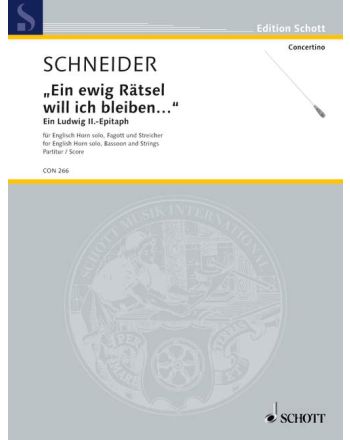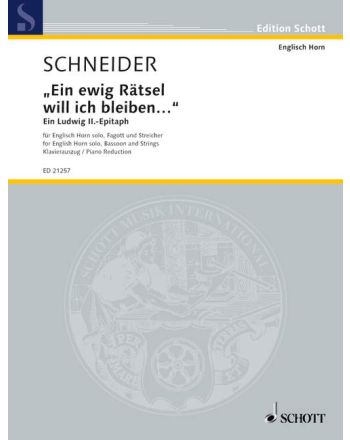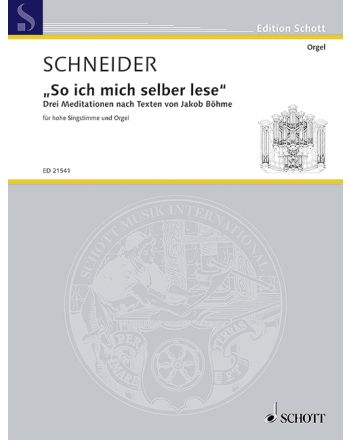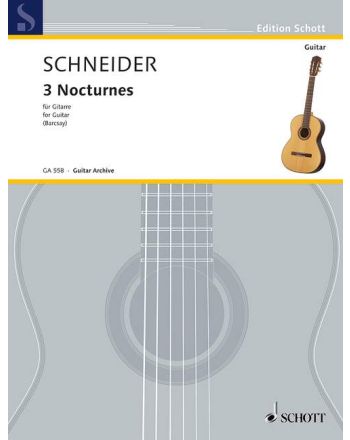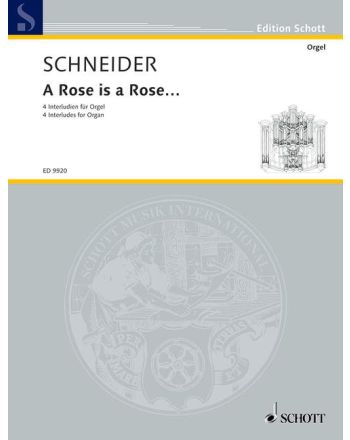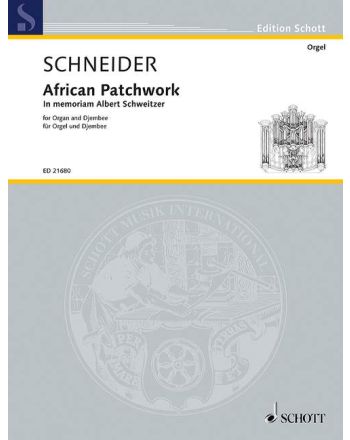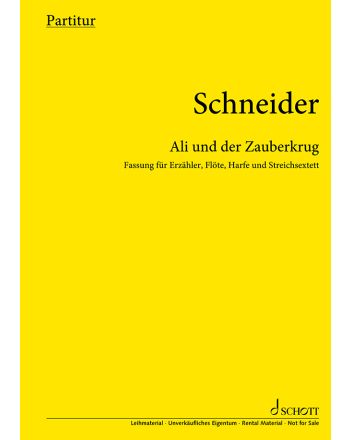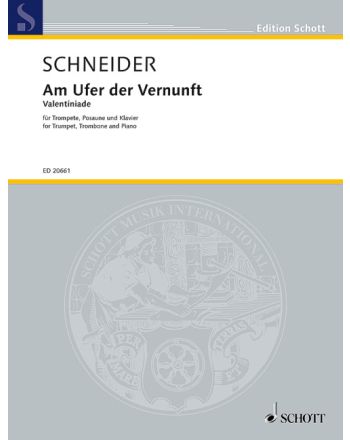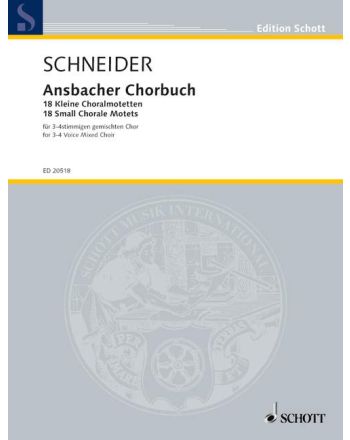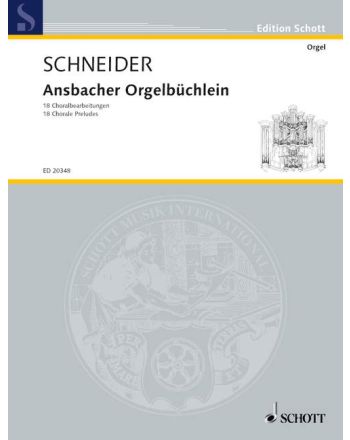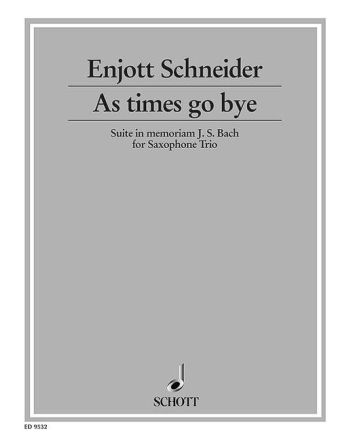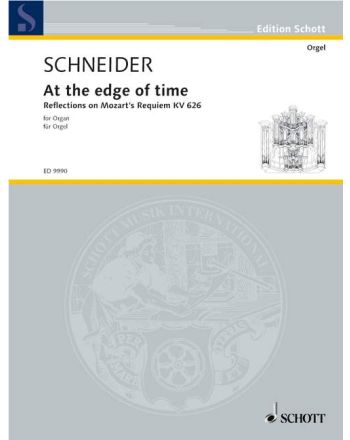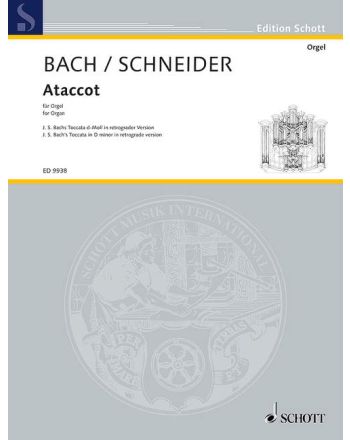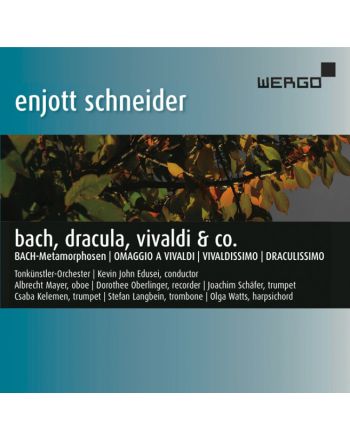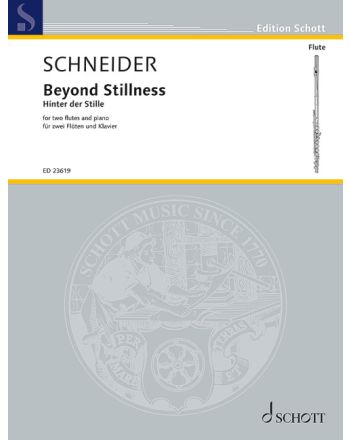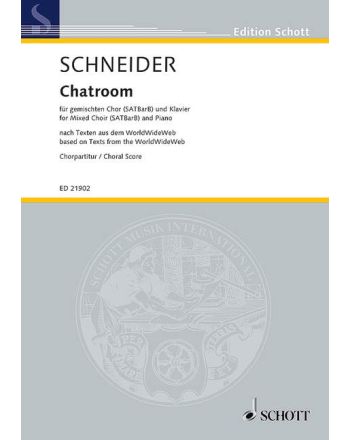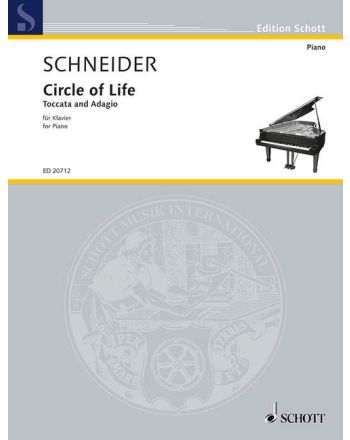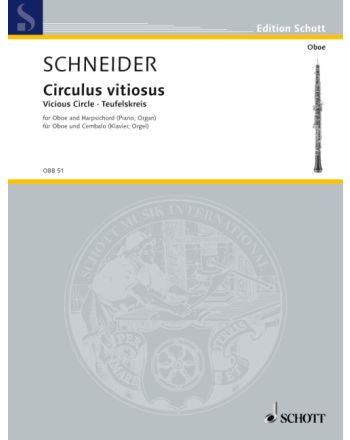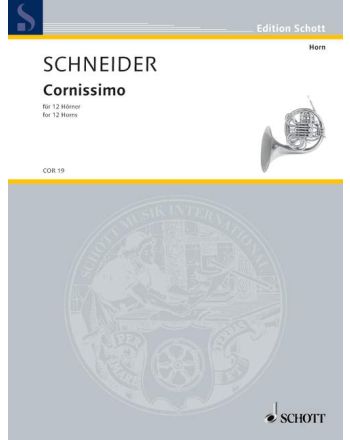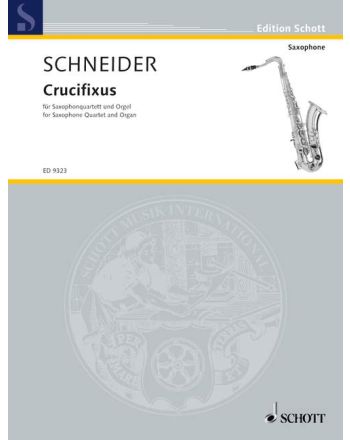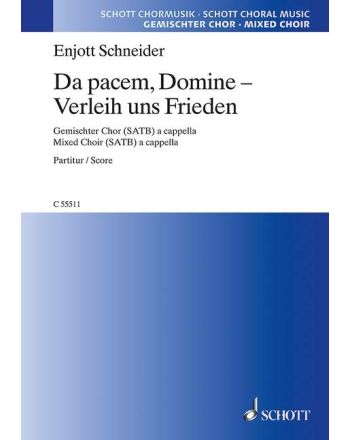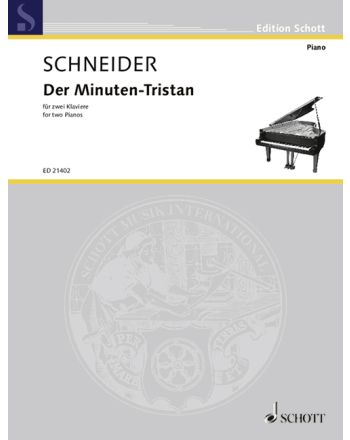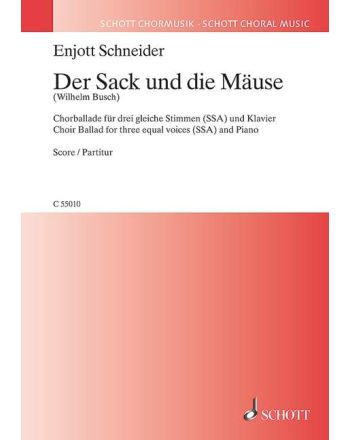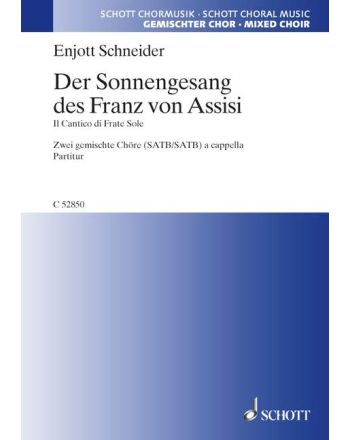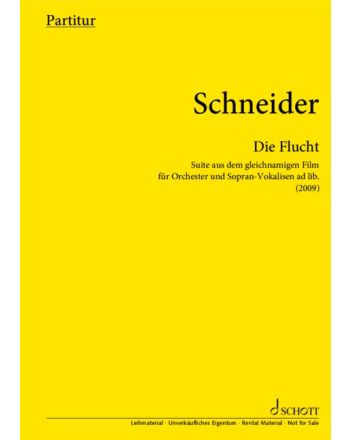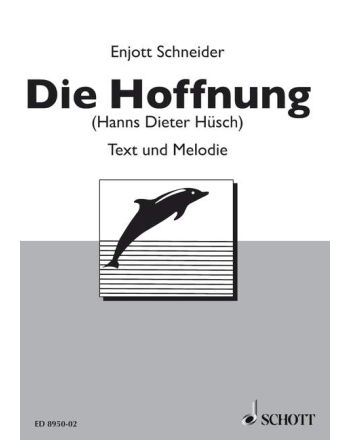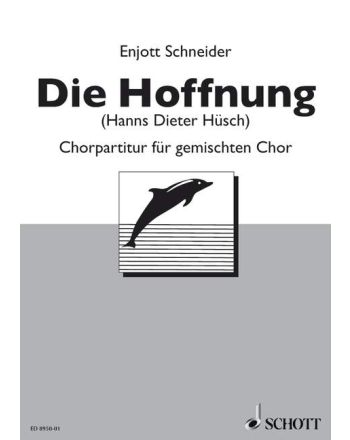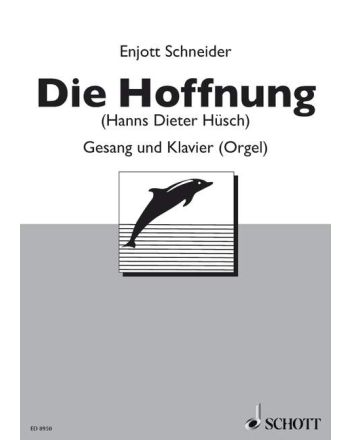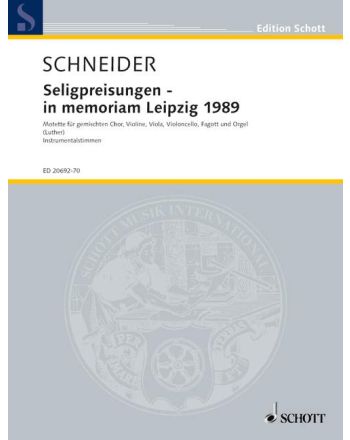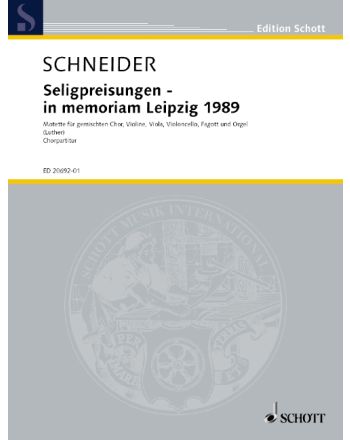
Enjott Schneider
Upcoming Performances
About Enjott Schneider
Pictorial expressiveness and direct emotionality – these are not only the requirements for good film music but also the fundamental characteristics of my works for the stage and concert hall. Telling a story in images and music has always fascinated me from my early youth up to the present day. (Enjott Schneider)
Enjott Schneider was born in Weil am Rhein on 25 May 1950. He learned a variety of musical instruments at an early age, including violin, piano, accordion, trumpet and organ. He was appointed as organist in Huningue in France at the age of 19 and held a similar post from 1975 in Hinterzarten. He was also active as a conductor and as singer and keyboard player with the pop group "Kaktus". In 1969, Schneider began studies in music theory, music education, organ and trumpet at the Musikhochschule in Freiburg and also studied Musicology, German and linguistics at the University in Freiburg where he completed a doctorate under Hans-Heinrich Eggebrecht. During the following years, he taught harmony and musicology at the University of Freiburg before being appointed as professor for music theory at the Hochschule für Musik in Munich. Schneider has produced numerous publications including the book “Pop Music”, monographs on individual works, articles for reference books and contributions to the Hindemith yearbooks. The spectrum of these publications ranges from musicological studies ("Die Kunst des Teilens. Zeit – Rhythmus – Zahl", 1991) to monographs on individual composers, music educational topics, aspects of music sociology and film music. Schneider set up the recording studio Augenklang in 1988 which was superseded by the Greenhouse Studio in 1997. He lectured at the State Film Institute in Pune (India) in 1993 and held a chair for composition for film and television at the Hochschule für Musik in Munich from 1996 to 2012. Since 2011, he teaches composition at the Hochschule für katholische Kirchenmusik & Musikpädagogik Regensburg. Schneider has been a member of the GEMA supervisory board since 2003 and became its chairman in 2012. In 2013, he was elected President of the German Composers Association (DKV).
During the 1980s, Schneider advanced to become one of the major German composers of film music. The musical scores for German television series such as Weißblaue Geschichten (since 1991), Marienhof (1992) and Vater wider Willen (1998) enjoy an equal degree of popularity to his music for television and cinema films including Herbstmilch (1988), Stalingrad (1992), Schlafes Bruder (1995), Stauffenberg (2004) and Die Flucht (2007).
Schneider’s compositional output is characterised by its virtuoso interweaving of a wide variety of styles – ranging from serial techniques to rock music – and encompasses works for orchestra and organ, chamber music and vocal and music theatre compositions. Schneider created a “Gesamtkunstwerk” concept incorporating traditional music theatre techniques with sound design, lighting and audiovisual collages with his operas Albert warum? (first performance in Regensburg in1999) and Das Salome-Prinzip (1983; staged in Gelsenkirchen in 2002) and the musical Diana – Cry for Love (premiered in Görlitz in 2002). These works were followed in 2004 by the first performances of the opera Bahnwärter Thiel based on Gerhard Hauptmann and the official musical for the centenary of the German football club FC Schalke 04 entitled nullvier – Keiner kommt an Gott vorbei. In 2006, his opera Fürst Pückler – Ich bin ein Kind der Phantasie received its first performance in the theatre in Görlitz. The vocal composition Orbe rotundo with settings of Latin and mediaeval texts in analogy to Orff’s Carmina Burana was premiered in the Residenz in Munich in 2010.
Schneider has composed eight symphonies to date, each of which is based on programmatic content or texts and, with the exception of Sisyphos (Symphony No. 2) for percussion and orchestra and Dunkelwelt Untersberg (Symphony No. 7), are conceived as vocal works. In his Glocken-Sinfonie (Symphony No. 1), for example, he set texts from the Buchenwald concentration camp to music, in Chinese Seasons (Symphony No. 3) free adaptations of Chinese poems, and in his "Peace Symphony" Salaam (Symphony No. 4) he took up the themes of creation and peace among religions in literary form.
Schneider's preference for programmatic content is also evident in concert works such as the organ concerto Hiob (2007), his concerto grosso Draculissimo for trumpet in B flat, tenor trombone and chamber ensemble, as well as the three cello concertos Dugud (2011), Sulamith (2014) and Abaddon - Angel of Abyss (2015). The pieces for sheng and orchestra Veränderungen (Changes) (2002-2003) and Earth and Fire (2010) also reveal Schneider's enthusiasm for Chinese music and culture. The music of earlier epochs is also an important source of inspiration for Schneider, which is evident particularly in the widely performed, baroquising Vivaldissimo for two trumpets, string orchestra and harpsichord (2000), Omaggio a Vivaldi for recorder, strings and harpsichord (2011) and Mozart Ascending for oboe and orchestra (2015).
Another focal point of Schneider's oeuvre is his 16 organ symphonies. Schneider composed the extensive pieces in the period from 2005 to 2016, thus making a significant contribution to the continued existence of this genre of works in the 21st century.
Schneider was awarded the Bavarian Film Prize for Film Music and the Bundesfilmband in Gold in 1991, the Golden Score in 1996, the Fipa d’or in 2001, the German Television Prize for the best film music in 2007, and the SoundTrack_Cologne Honorary Award in 2015. In 2019 he received the Honorary Award of the German Film Music Award.
Between 2014 and 2022, the WERGO label released a 15-CD series of Schneider's orchestral works.
Worklist
Gallery




Chronology
Products
-
An epitaph on Ludwig II for cor anglais solo, bassoon and stringsProduct TypeIn stockAs low as €14.99Incl. Tax
-
An epitaph on Ludwig II for cor anglais solo, bassoon and stringsProduct TypeIn stockAs low as €19.99Incl. Tax
-
An epitaph on Ludwig II for cor anglais solo, bassoon and stringsComposer: Enjott SchneiderMedia Type: Sheet musicEdition: Set of parts, 1 cor anglais, 1 bassoon, 4 violins I/ II, 3 violas, 3 cellos, 2 double bassesProduct number: CON 266-50Print editionPrint editionIn stock€62.00Incl. Tax, Excl. Shipping
-
Sinfonisches Gedicht für Orchester und Orgel ad lib.Hire/performance materialHire/performance material
-
Drei Meditationen für hohe Singstimme und Orgel nach Texten von Jakob BöhmeComposer: Enjott SchneiderSeries: Edition Schott
Instrumentation: high voice and organProduct number: ED 21541Product TypeIn stockAs low as €11.99Incl. Tax -
Fragments of Rilke's poems for boys' voices, choir, organ and other instrumentsComposer: Enjott SchneiderText writer: Rainer Maria Rilke | Robert SchneiderInterpreter: Bruno Feldkircher | Harald Feller | Robert SchneiderConductor: Gerd GuglhoerChoir: Luzerner Singknaben | orpheus choir munichOrchestra/ensemble: Orpheus OrchesterMedia Type: CDProduct number: WER 66132CDCDIn stock€12.00Incl. Tax, Excl. Shipping
-
Composer: Enjott SchneiderEditor: Stefan BarcsaySeries: Guitar Archive
Edition Schott
Instrumentation: guitarProduct number: GA 558Product TypeIn stockAs low as €10.99Incl. Tax -
4 InterludesProduct TypeIn stockAs low as €9.99Incl. Tax
-
Apocalyptic scene for cello and orchestraHire/performance materialHire/performance material
-
In memoriam Albert SchweitzerComposer: Enjott SchneiderEdition: Score and partSeries: Edition Schott
Instrumentation: organ and DjembéProduct number: ED 21680Product TypeIn stockAs low as €18.99Incl. Tax -
Kammeroper für sieben Sänger, neun Instrumentalisten und Zuspielelektronik ad lib.Composer: Enjott SchneiderMedia Type: Hire/performance materialEdition: Performance materialLanguage: GermanHire/performance materialHire/performance material
-
A musical fairy tale for childrenComposer: Enjott SchneiderMedia Type: Hire/performance materialEdition: Performance materialLanguage: GermanHire/performance materialHire/performance material
-
Ein musikalisches Märchen aus ÄthiopienComposer: Enjott SchneiderAuthor: Karlheinz BoehmMedia Type: Book with CDEdition: incl. 2,- EUR donationSeries: Ali und der Zauberkrug
Language: GermanProduct number: ED 9773Book + CDBook + CDIn stock€22.00Incl. Tax, Excl. Shipping -
A musical fairy tale for childrenComposer: Enjott SchneiderMedia Type: Hire/performance materialEdition: Performance materialLanguage: GermanHire/performance materialHire/performance material
-
Valentiniade for Trumpet, Trombone and PianoComposer: Enjott SchneiderEdition: Score and partsSeries: Edition Schott
Instrumentation: trumpet, trombone and pianoProduct number: ED 20661Product TypeIn stockAs low as €32.99Incl. Tax -
18 kleine ChoralmotettenComposer: Enjott SchneiderEdition: Choral scoreSeries: Edition Schott
Instrumentation: mixed choir a cappella (SATB or SABar)Product number: ED 20518Product TypeIn stockAs low as €11.99Incl. Tax -
18 Choral SettingsProduct TypeIn stockAs low as €17.99Incl. Tax
-
Suite in memory J. S. BachComposer: Enjott SchneiderEdition: Score and partsInstrumentation: saxophone-Trio (ATBar)Product number: ED 9532Product TypeIn stockAs low as €19.99Incl. Tax
-
Reflections on Mozart's Requiem K 626Product TypeIn stockAs low as €15.99Incl. Tax
-
Reflections on Mozart's Requiem KV 626Composer: Enjott SchneiderMedia Type: Hire/performance materialEdition: Performance materialInstrumentation: orchestraHire/performance materialHire/performance material
-
J. S. Bachs Toccata D minor in a retrograde versionComposer: Johann Sebastian Bach | Enjott SchneiderSeries: Edition Schott
Instrumentation: organ; timpani ad libitumProduct number: ED 9938Product TypeIn stockAs low as €7.99Incl. Tax -
Composer: Enjott SchneiderInterpreter: Csaba Kelemen | Stefan Langbein | Albrecht Mayer | Dorothee Oberlinger | Joachim Schaefer | Olga WattsConductor: Kevin John EduseiOrchestra/ensemble: Tonkunstler OrchestraMedia Type: CDProduct number: WER 51142CDCDIn stock€18.50Incl. Tax, Excl. Shipping
-
Oper in acht BildernComposer: Enjott SchneiderMedia Type: Hire/performance materialEdition: Performance materialLanguage: GermanHire/performance materialHire/performance material
-
for two flutes and pianoComposer: Enjott SchneiderProduct number: ED 23619Product TypeIn stockAs low as €16.99Incl. Tax
-
nach Texten aus dem WorldWideWebComposer: Enjott SchneiderEdition: Choral scoreSeries: Edition Schott
Instrumentation: mixed choir (SATBarB) and pianoProduct number: ED 21902Product TypeIn stockAs low as €11.99Incl. Tax -
Composer: Enjott SchneiderInterpreter: Vesselina Kasarova | Wei WuConductor: Xincao LiOrchestra/ensemble: Tonkunstler OrchestraMedia Type: CDProduct number: WER 51112CDCDIn stock€18.50Incl. Tax, Excl. Shipping
-
Sinfonie Nr. 3 für Alt, Sheng und OrchesterComposer: Enjott SchneiderMedia Type: Hire/performance materialEdition: Performance materialLanguage: GermanHire/performance materialHire/performance material
-
Begleitmusik zum gleichnamigen SilhouettenfilmHire/performance materialHire/performance material
-
Toccata and Adagio for PianoProduct TypeIn stockAs low as €11.99Incl. Tax
-
Vicious CircleComposer: Enjott SchneiderSeries: Oboe Library
Edition Schott
Instrumentation: oboe and harpsichord (piano, organ)Product number: OBB 51Product TypeIn stockAs low as €11.99Incl. Tax -
Composer: Enjott SchneiderInterpreter: Dominik WollenweberOrchestra/ensemble: Clair-Obscur Saxophonquartett | Siberian State Symphony OrchestraConductor: Vladimir LandeChoir: Tebe Poem KrasnoyarskMedia Type: CDProduct number: WER 51192CDCDIn stock€18.50Incl. Tax, Excl. Shipping
-
for 12 hornsComposer: Enjott SchneiderEdition: Score and partsSeries: Il Corno
Edition Schott
Instrumentation: 12 hornsProduct number: COR 19Product TypeIn stockAs low as €17.99Incl. Tax -
Composer: Enjott SchneiderEdition: Score and partsSeries: Edition Schott
Instrumentation: saxophone-Quartett (SATBar) and organProduct number: ED 9323Product TypeIn stockAs low as €26.99Incl. Tax -
Echoes of the piano sonata in B minor by Franz LisztPrint editionPrint editionOut of stock€32.00Incl. Tax, Excl. Shipping
-
MotetteComposer: Enjott SchneiderEdition: Choral scoreSeries: Schott Choral Music
Instrumentation: mixed choir (SATB) a cappellaProduct number: C 55511Product TypeIn stockAs low as €2.99Incl. Tax -
Composer: Enjott SchneiderEditor: Klaus FischbachMedia Type: E-score PDFInstrumentation: mixed choir (SATB)Language: German, LatinProduct number: ED 21177 Q23011E-score PDFE-score PDFIn stock€1.99Incl. Tax
-
A collection of new pieces for pianoMedia Type: Sheet musicInstrumentation: pianoLanguage: EnglishProduct number: ED 21470Print editionPrint editionIn stock€10.00Incl. Tax, Excl. Shipping
-
Kammeroper nach Oscar WildeComposer: Enjott SchneiderMedia Type: Hire/performance materialEdition: Performance materialLanguage: GermanHire/performance materialHire/performance material
-
for two pianosComposer: Enjott SchneiderEdition: Performing score, A second playing score is inserted for the second pianist.Series: Edition Schott
Der Minuten-Tristan
Product number: ED 21402Product TypeIn stockAs low as €19.99Incl. Tax -
Composer: Enjott Schneider | Richard WagnerInterpreter: Martina Bauer | Josef Breinl | Sachiko Hara | Dorothea Hofmann | Zhao Ling | I-Chen Lo | Michaela Puehn | Wilhelm Ricchiuti | Fabio Romano | Michael Schneidt | Maria Sissi | Andreas SkourasOrchestra/ensemble: Pianistenensemble der Hochschule MuenchenMedia Type: CDProduct number: ALC 55032CDCDIn stock€5.50Incl. Tax, Excl. Shipping
-
Symphonie Nr. 6 für Sopran, Chor und OrchesterComposer: Enjott SchneiderMedia Type: Hire/performance materialEdition: Performance materialLanguage: German, LatinHire/performance materialHire/performance material
-
Chorballade nach Wilhelm BuschComposer: Enjott SchneiderEdition: ScoreSeries: Schott Choral Music
Instrumentation: 3 equal voices (SSA) and pianoProduct number: C 55010Product TypeIn stockAs low as €3.99Incl. Tax -
Composer: Enjott SchneiderEdition: Choral scoreSeries: Schott Choral Music
Instrumentation: 2 mixed choirs (SATB/SATB)Product number: C 52850Product TypeIn stockAs low as €4.99Incl. Tax -
Memorial für Soli, Chor, Ballett und OrchesterComposer: Enjott SchneiderMedia Type: Hire/performance materialEdition: Performance materialLanguage: German, EnglishHire/performance materialHire/performance material
-
Suite aus dem gleichnamigen FilmHire/performance materialHire/performance material
-
"Wir sind Phantasten des Herrn"Composer: Enjott SchneiderEdition: Lyrics sheet, and melodyInstrumentation: mixed choir (SATB or unisono) a cappella or with organ/piano (combo)Product number: ED 8950-02Product TypeIn stockAs low as €1.99Incl. Tax
-
Auftragswerk des 93. Deutschen Katholikentags e.V., MainzComposer: Enjott SchneiderEdition: Choral scoreInstrumentation: mixed choir a cappellaProduct number: ED 8950-01Product TypeIn stockAs low as €1.99Incl. Tax
-
"Wir sind Phantasten des Herrn"Composer: Enjott SchneiderEdition: Organ reductionInstrumentation: Mixed Choir (SATB or unisono) a cappella or with Organ/Piano (Combo)Product number: ED 8950Product TypeIn stockAs low as €4.99Incl. Tax
-
Text aus dem Matthäus-Evangelium, 5, 3-12 in der Übersetzung von Martin LutherComposer: Enjott SchneiderEdition: Set of partsInstrumentation: mixed choir, string trio, bassoon and organProduct number: ED 20692-70Product TypeIn stockAs low as €19.99Incl. Tax
-
Text aus dem Matthäus-Evangelium, 5, 3-12 in der Übersetzung von Martin LutherComposer: Enjott SchneiderEdition: Choral scoreInstrumentation: mixed choir, string trio, bassoon and organProduct number: ED 20692-01Product TypeIn stockAs low as €7.99Incl. Tax

